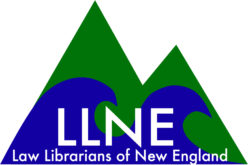By Carli Spina
In the most recent issue of the LLNE News, I wrote about the new social network Ello. Since that article was published, Ello has continued to add some new features to respond to user concerns, such as settings that will make sure that you don’t encounter “not safe for work” content and the ability to block or mute other users. Perhaps even more interesting to LLNE blog readers, Ello also changed its legal status to address concerns that it would ultimately sell user data or allow ads to be placed on the network. In an effort to alleviate these concerns, Ello has converted to a Public Benefit Corporation (“PBC”) under the laws of Delaware. In a letter posted on the site, the founders and investors argue that this will bind them to their stated mission of remaining ad-free. Specifically, the letter states,
“Ello’s PBC’s charter states that Ello shall not for pecuniary gain:
- Sell user-specific data to a third party;
- Enter into an agreement to display paid advertising on behalf of a third party; and
- In the event of an acquisition or asset transfer, the Company shall require any acquiring entity to adopt these requirements with respect to the operation of Ello or its assets.”
This is an interesting and fairly high profile use of the relatively new (at least in Delaware) Public Benefit Corporation structure to alleviate a specific public relations problem for a company. Under Delaware law, a Public Benefit Corporation is “a for-profit corporation organized under and subject to the requirements of this chapter that is intended to produce a public benefit or public benefits and to operate in a responsible and sustainable manner. To that end, a public benefit corporation shall be managed in a manner that balances the stockholders’ pecuniary interests, the best interests of those materially affected by the corporation’s conduct, and the public benefit or public benefits identified in its certificate of incorporation.”[1] This provision was enacted on August 1, 2013 and on the first day Delaware saw a record 17 businesses file to become PBCs. However, after that initial rush to become a PBC, the incorporation of new PBCs or the conversion of other entities to PBCs slowed and in the end only 55 PBCs existed in Delaware 90 days after the effective date of the provision.[2] It remains to be seen how popular PBCs will become, but with several states offering this kind of corporate structure, it is important to understand the basics of how they differ from other corporate entities.
But, what does converting to a PBC mean for Ello? As a Public Benefit Corporation, Ello will have to state its principles in its certificate of incorporation and at all times balance these principles with stockholder interests when making decisions. This type of organization is specifically intended to benefit organizations that are not nonprofits but nevertheless wish to commit to a purpose beyond pure monetary gain, so it seems like a good fit for Ello, but at the same time, there is not much law clarifying exactly how this balancing should be done and, as some critics have noted, the company could always convert away from PBC status in the future if a sufficient number of shareholders agreed to the plan. Ultimately, for Ello, this conversion will likely have the desired effect of reassuring users to at least some degree that the company will remain true to its stated principles. And, the plan seems to be succeeding in at least one way: the company has already received $5.5 million in venture funding.
[1] Del. Code tit. 8, §362.
[2] Alicia E. Plerhoples, Delaware Public Benefit Corporations 90 Days Out: Who’s Opting in?, 14 U.C. Davis Bus. L.J. 247, 259 (2014).

